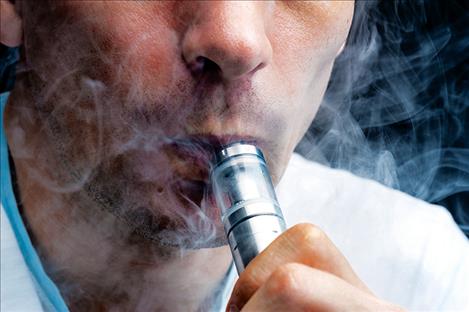DPHHS announces notice to enforce restriction on flavored e-cigarettes
Hey savvy news reader! Thanks for choosing local.
You are now reading
1 of 3 free articles.
News from DPHHS
MONTANA – The Montana Department of Public Health and Human Services announced its notice of intent to begin enforcing emergency rules that temporarily restrict the sale of flavored e-cigarette products in Montana. Enforcement of the emergency rules begins on Wednesday, Dec. 18, 2019 at 1 p.m.
The restrictions include the sale of all flavored e-cigarette products, including flavored nicotine, THC and CBD e-cigarette products, in-store and online. The rules do not require retailers to destroy their existing inventory.
DPHHS is proceeding with enforcement of the rules after a temporary restraining order preventing enforcement expired by operation of law in October.
Since the emergency rules were first announced, DPHHS has confirmed five additional cases of e-cigarette or vaping product use associated lung injury in Montana. DPHHS continues to investigate multiple potential new cases. In addition, the imminent threat to public health and safety caused by epidemic levels of youth use and addiction remain unchanged.
“Public health experts in Montana and throughout the country continue to be alarmed by the epidemic proportions of youth addiction to flavors as well as the short and long-term injuries from e-cigarette use,” said Montana DPHHS Director Sheila Hogan. “An alarming number of young Montanans are getting addicted. People are still getting sick. Pediatricians and public health officials agree that this crisis cannot continue unaddressed.”
E-cigarettes can contain heavy metals, ultrafine particles and cancer-causing agents like acrolein. Some flavorings, particularly those found in e-juice, have been found to be toxic and associated with inflammatory and oxidative stress in lung cells and white blood cells.
Nearly 60 percent of Montana high school students and 30 percent of middle school students have tried vaping. In 2019, almost one in 10 Montana high school students vaped daily, exposing their brains to the long-term effects of nicotine damage. This is a 23 percent increase from 2017.
A recent report by the FDA states that 96 percent of 12-to 17-year-olds who initiated e-cigarette use started with a flavored product, and 70 percent report the flavors as the reason they use e-cigarettes.
Research shows that kids who use e-cigarettes are four times more likely to smoke cigarettes in the future than kids who do not use e-cigarettes. Nicotine exposure in youth causes long-term structural and functional changes in the brain, can lead to long-lasting effects like lower impulse control and mood disorders and can prime young brains for addiction to other drugs such as cocaine and meth.
In addition, the CDC has not conclusively identified a cause or causes of the outbreak of pulmonary lung injury and has only just found the first potential chemical of concern. Vitamin E acetate was detected as an association in a sample of 29 EVALI case-associated specimens. There are some EVALI cases, including in Montana, identified as nicotine-only and it is still not known what is causing EVALI in nicotine-only patients. As the CDC continues additional studies and testing, public health authorities are continuing the recommendation that consumers consider refraining from using all e-cigarette products.
The ban on flavored cigarettes in 2009 was associated with a 17 percent reduction in the probability that middle and high school youth would become smokers, and a 58 percent reduction in cigarettes smoked by current youth smokers. Overall, the probability of youth using any form of tobacco dropped by six percent following the ban on flavored cigarettes.
















